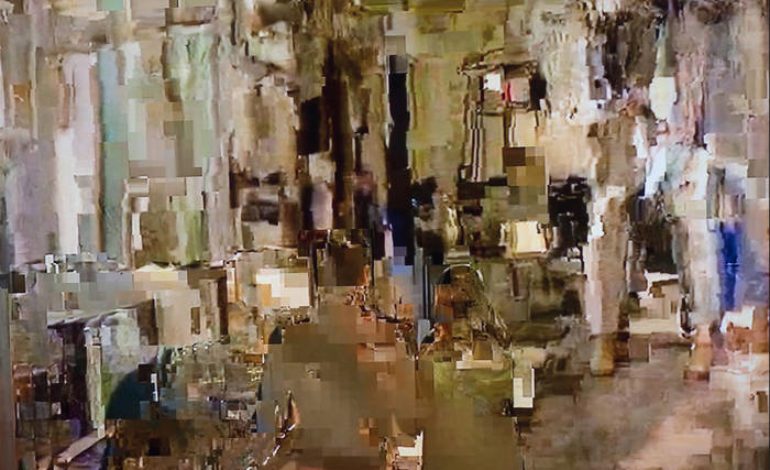

A defective 4-Pole filter spawns a 25-year long career
Düsseldorf native musician and electronic producer Stefan Betke, AKA Pole, embraces the unsettling themes of 2020 by bringing forth a daunting atmospheric album inspired by the intricate themes of memory loss. Releasing Pole’s first album since 2015’s Wald, Betke presents people with Fading, a bass-heavy deconstructive mix of dub and techno tracks that resemble the feelings of abundance and debilitating loss followed by the concept of losing one’s memory.
This concept is one at large for Betke, as the album is strongly inspired by his personal experiences with his mother having dementia. However, although Fading does display a heavy level of emotional hardship, Betke places strong emphasis on his sound, successfully provoking feelings such as confusion and rebirth. The album art itself tells a story, with a graphic image of two people from behind in a room that holds a vortex-like setting.
“I saw her losing all the memory that she had accumulated over her 91 long years. When losing that memory it turned into what she was probably like at the beginning of her life when she was born—like an empty box,” said Betke about his mother. This image lead Betke to create the first track on the album, “Drifting,” in which he replicates the idea of a lifespan starting at nothing and getting fuller. People hear this in the intro, as they follow dark, extended synths, echoing subs and scattering high notes. Halfway through the track, there is a strong increase to a rhythmic, quick-paced drum beat. This eight-minute song really takes the listener on a journey, making their ears fuller with sound as they undergo it.
Pole established his name from a broken Waldorf 4-Pole filter and has been experimenting with malfunctioning gear ever since, achieving the distinctive glitching, crackling sound distinct to his lengthy career. Since 2001, Pole has been using this framework to adopt his sound, connecting together several pre-existing elements from each of his albums in the creation of this piece. Betke explains, “in order to stay in this kind of vertical development. The ideas from 1, 2, 3, up to now are connected. I keep interesting elements, languages and vocabulary that I designed and add new elements.” Fading gives people an overview of this process, as the sounds they hear are undeniably recognized, but remain fresh and exciting to the listeners as each track brings something new to Pole’s sound.
The following tracks on the album explore the sound for which Pole is recognized, as listeners enter a series of atmospheric beats resembling a meditative ambiance on “Erinnerung” and a rhythmic dance melody in “Tangente,” both of which hold an eccentric mix of bells and high notes. In “Traum,” people get more of that experimental Pole filter sound, and “Röschen” represents Pole’s version of funk. These tracks in all represent Pole’s origins of German ambient dub while representing the new-era of electronic club music.
Betke goes into detail about what he hoped to achieve in the last track, the eponymous “Fading,” explaining that it “deals with the idea of fading away and disappearing slowly. But one always leave something; people leave a feeling or an image or an atmosphere. Everybody who lives leaves something on this earth.” People get this effect again with extended synths, but this time with more rhythm and layering of sounds.
In all, Fading lays out a summarized foundation of Pole’s career in the past two decades, representing his origin of mixing genres through the combination of bass, dub and a broken pole filter. Holding a 25-year long career, Betke continues to challenge life’s endeavors through the composition of sound and the art of music.
